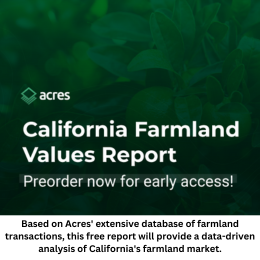August 3, 2017
TerraVia, a pioneering producer and developer of algae-based ingredients, has filed for bankruptcy under Chapter 11, and has agreed to a buyout by Corbion, a Dutch ingredients and bio-based product supplier, through a $20 million ‘stalking horse’ stock and asset purchase agreement.
“Stalking horse” bids are often used to hold off low bids and to act as a deterrent to a downward spiral in valuation by establishing a ground floor offer.
Headquartered in the Netherlands, Corbion specializes in the production of lactic acid and derivatives thereof, also in enzymes, emulsifiers, minerals, and vitamins. Listed on Euronext Amsterdam, the company saw annual sales of €911.3 million (US$1.08 billion) last year.
TerraVia came into its own in 2013 when it switched its name from Solazyme and redirected its focus away from alternative energy and solely to algae-based food, nutrition, and specialty ingredients. To fund the transition, the company raised a strategic funding round at the time of approximately $28 million in new preferred shares from a group of leading food and nutrition investors, including Glenhill Capital, VMG Partners, PowerPlant Ventures, ARTIS Ventures, Simon Equities, former CEO of Ventura Foods, Jack Davis, and founder and former CEO of Vega, Charles Chang.
To also help guide the transition, Irene Chang Britt, former president of Pepperidge Farm, and former senior executive with companies including Campbell’s Soup, Kraft, and Nabisco joined TerraVia’s board of directors.
The following year, in April 2016, the company partnered with private equity firm VMG Partners to launch TerraBrands.
TerraBrands was created to bring algae-based food and ingredients into the mainstream food sector through combining VMG’s expertise in brand building and investment capital with TerraVia’s ingredient platform.
At the time, Michael Mauze, managing director of VMG Partners, said in a press release announcing the partnership, “Given the accelerating demand for plant-based nutrition, we are excited to be at the forefront of this next generation of foods and ingredients.”
And indeed, the market potential for algae-based foods and ingredients seemed impressive. The vegetarian market was worth $2.8 billion last year and algae has been beginning to position itself to leverage consumers’ demands for “free of” foods and foods that cater to specialty diets, according to Fortune.
However, TerraVia has been unable to translate this market potential to its balance sheet. The company, which has not generated a profit in 15 years, posted a net loss of $22.6 million on revenues of $4.5 million for the first quarter of 2017.
This inability could be a result of misreading or being over confident in consumers’ willingness, particularly in Western markets, to jump from nut-based and plant-based foods to algae, points out Food Dive.
TerraVia has filed motions with the court requesting the ability to continue with normal operations, and moving forward, the Chapter 11 and acquisition are not expected to have any effect upon TerraVia’s ability to fully serve its previous obligations to its employees and customers.
-Lynda Kiernan
Lynda Kiernan is Editor with GAI Media and daily contributor to GAI News. If you would like to submit a contribution for consideration, please contact Ms. Kiernan at lkiernan@globalaginvesting.com

Let GAI News inform your engagement in the agriculture sector.
GAI News provides crucial and timely news and insight to help you stay ahead of critical agricultural trends through free delivery of two weekly newsletters, Ag Investing Weekly and AgTech Intel.




